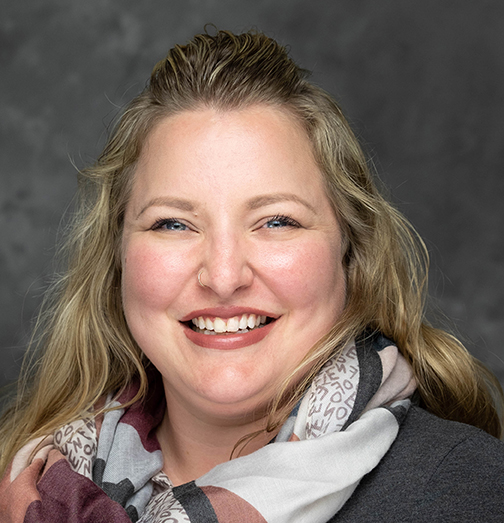
By Aidan Balt[pull_quote_right]I want to highlight the amazing work of the youth in this community and the educators who invest into their lives.[/pull_quote_right]
[dropcap type=”2″]A[/dropcap]As a classroom teacher at Maricopa High School, I work with students from all over the world on a daily basis. Former Arizona Teacher of the Year Josh Meibos once put it something like this: “My dream was to see the world, and then the world came to me.”
For me, as a life-time wanderer and learner, being an educator is not only the perfect profession for me, in some ways, it is the only profession for me. So, when Meibos talks about the world arriving in his class, not only do I relate to it—I live it.
Last spring, I took a huge professional leap and submitted my application for a year-long teaching fellowship through the Fulbright organization. When the notification that I had actually been awarded the fellowship arrived, I was both shocked and thrilled! Now, as a Fulbright Teachers for Global Classrooms Fellow, I am deeply involved in my graduate coursework on developing global classrooms. In June, I will be traveling for an international field experience in Peru.
While this opportunity is once in a lifetime, in the last eight weeks or so, I have realized something even more valuable: when I look around MHS, it is clear to me that we are already a very global campus. We have almost 20 international staff members, students who speak Navajo, Cambodian, Tagalog, Swahili, Spanish, Laotian, and many other languages.
We are a Title One campus of approximately 2,600 students who hail from all places in our nation and even from across the globe. We have at least 12 tribal communities represented at MHS. We have students whose families have fled war-torn regions. We have staff members who have lived internationally, many of whom served in our military and were based in various locations around the world.
I am realizing that our diversity is our strength; it truly is a small world, right here in the middle of Maricopa. We all exist in this space together, but unless you work at, or frequently visit our campus, this “little” global community might be completely new to you. On one hand, our high school campus is over capacity and in some ways bursting at the seams, on the other hand, our campus is bursting with diverse perspectives and experiences which add value not only to our school, but to our city as a whole.
Over the next six months, I want to share my perspectives with you as a teacher, a learner and a Fulbright recipient, on fostering and building a global classroom for my students and how I am encouraging those around me to do the same. I want to highlight the amazing work of the youth in this community and the educators who invest into their lives. I also want to share how experiences outside of the United States can help us all take perspective of the amazing opportunities and resources in our own backyard. I hope you will join me on this journey and maybe identify your own global perspective and ways that you can contribute to this small world.
My journey to this place begins a long time ago during my own high school experience. As a high schooler, I was fortunate to have many wonderful teachers who taught me great lessons about life and learning, but by far, there was one teacher who impacted my life in a profound way, and this teacher was a driving factor in my decision to ultimately pursue education as a career. When I was a senior in high school, this teacher told stories about his own experiences as a Fulbrighter in Germany and Japan. Since then, I have always dreamed of one day calling myself a Fulbrighter.
The Fulbright organization was founded in 1946 and is considered to be one of the most prestigious scholarship programs in the world. Annually, around 8,000 students, educators, scientists, and artists, are awarded grants and fellowships. Fulbright aims to improve intercultural relations, cultural diplomacy, and intercultural competence between citizens of the U.S. and citizens of other nations through the exchange of people, ideas, and skills. Fulbright Teachers for Global Classrooms (FTGC) awards approximately 75 grants each year. For this last grant application, around 500 teachers applied. The goal of the program is to equip teachers with the skills needed to prepare our students for our global economy and to foster an international perspective through global collaboration.
FTGC is sponsored not only by the Fulbright organization, but also by the U.S. Department of State and IREX. FTGC Fellows take a graduate course for ten weeks prior to attending the Education Summit in Washington, DC. After the summit, teachers are partnered with a smaller group from their cohort for an international teaching experience. During this portion of the fellowship, the Fellows work with an international teacher and international students in their school. After the international field experience, the Fellows complete a capstone project which is essentially a work of action-research focused on taking what they have learned and bringing it back to their school and classroom.
In 2020, the FTGC Fellows will be traveling to Colombia, Peru, Senegal, Thailand, India, and Morocco. The countries for placement are determined in partnership with the U.S. Department of State and the FTGC Fellows do not choose their placement. So, what is the goal of all of this? Well, it is to build international relationships between educators, nations, and peoples, not on the macro-level, but on the micro-level, it is about preparing our youth for the world of tomorrow. If you know any educators, you know that we are on the frontlines in regard to the fact that our world is changing.
In a professional development session I participated in this year, I heard it put this way: “If you are teaching the way you learned it, you are teaching to the past.” Our world is more global than it has ever been at any other point in history. Students today are preparing for jobs that don’t even exist yet. As I work to be the best educator I can be, I realized that I needed to expand my own toolkit in order to prepare our youth for the world of not only today, but the world of tomorrow.
[pull_quote_center]Students today are preparing for jobs that don’t even exist yet. [/pull_quote_center]
But, again, if you know any educators, you will know that teachers often like to stay in the background and work quietly. Teachers can have a difficult time speaking about the work we do, the craft of being an excellent educator, and the heartbreak, hard work and headaches that go with it.
For all my fellow educators, a former Teacher of the Year wrote about why teachers need to dare to go first. “In my visits with teachers, I’ve found that one of the most depressing things I hear is a variation of: “I can’t do_____, I’m just a teacher.” But in my mind, only a teacher can do the kinds of advocacy we are called to do.
Because I was “just a teacher,” I was invited to speak to both the Israeli and the Palestinian ministers of education. I also was invited to speak to the lieutenant governor and the chairmen of the education committees in my state. Someone has to go first. Why not you? If you’re reading this, I can guarantee that you’re not “just a teacher.” You are a stabilizing force for good, a fierce promoter and protector of our democracy.
For so many children, you are the difference between hope and despair. For so many teachers, you are the model of what a change agent looks like and sounds like. To paraphrase the Biblical book of Esther: ‘And who knows whether you have not become a teacher for such a time as this?’ This is your time. Dare to go first.”
Now, I am not the first Fulbrighter by any means. I am not the first teacher to write for the local newspaper. I am not the first teacher to achieve National Board Certification. But, I am still daring to go first. I am taking a step. I am daring, I am bold, I am leading. I am hoping that others will follow. I am daring to go first by asking my students to learn about the world and evaluate their own place in it by doing that for myself first.
Aidan Balt is a recipient of the Fulbright scholarship, a National Board Certified teacher, an Arizona Teaching Fellow and an Arizona Master Teacher. She has taught at Maricopa High School since 2010.

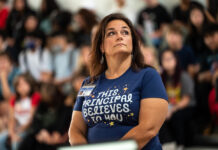
![Who’s the Best Mom InMaricopa? Nominate now! Marlene Marshall, Christina Olivares, and Meghan Bremer. [Bryan Mordt]](https://www.inmaricopa.com/wp-content/uploads/2023/05/BCM_8465-218x150.jpg)

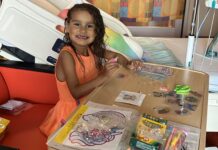
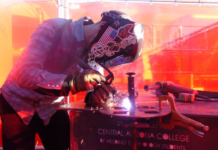
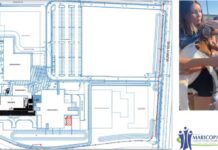
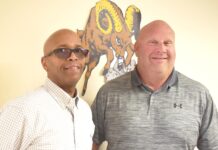
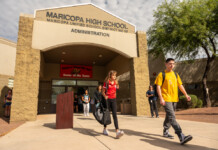
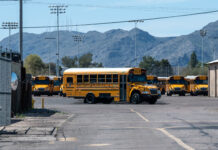


![Alleged car thief released without charges Phoenix police stop a stolen vehicle on April 20, 2024. [Facebook]](https://www.inmaricopa.com/wp-content/uploads/2024/04/IMG_5040-218x150.jpg)


![MHS G.O.A.T. a ‘rookie sleeper’ in NFL draft Arizona Wildcats wide receiver Jacob Cowing speaks to the press after a practice Aug. 11, 2023. [Bryan Mordt]](https://www.inmaricopa.com/wp-content/uploads/2024/04/cowing-overlay-3-100x70.png)

